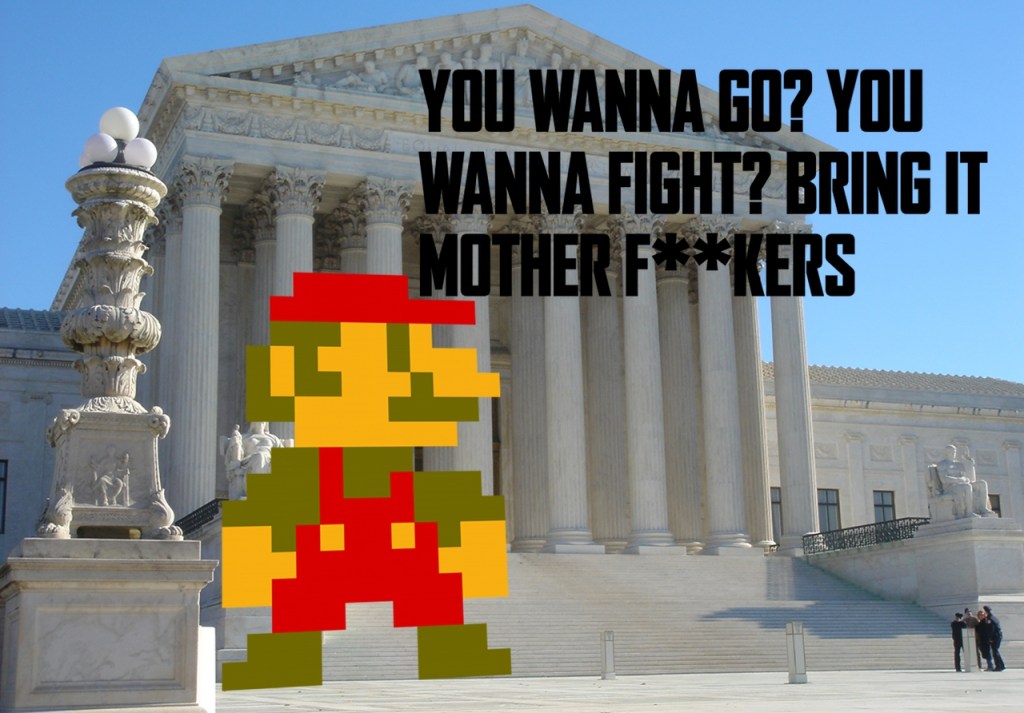You know, I always thought to myself, "Hey, I could be a judge." You know, sit around and tell everyone what it's like: "Sit down and shut up! You're stupid, and you're stupid! Pay him and leave him alone! You can't handle the truth!" Yeah, that'd be the life. Being a judge would be really easy.
Take this California V. Electronic Software Association case, which can be summed by "Shut up, California! You can't have everything you want! Fix the damn deficit instead of trying to keep gamers down!" That's basically what the Supreme Court said… you know, with a lot less attitude and with more words that actually pertained to the case.
In a release, the ESA president and CEO Michael D. Gallagher said:
This is a historic and complete win for the First Amendment and the creative freedom of artists and storytellers everywhere. Today, the Supreme Court affirmed what we have always known — that free speech protections apply every bit as much to video games as they do to other forms of creative expression like books, movies, and music. The Court declared forcefully that content-based restrictions on games are unconstitutional; and that parents, not government bureaucrats, have the right to decide what is appropriate for their children.
The Supreme Court of the United States upheld decision in lower courts with a 7-2 decision. Justice Scalia wrote for the majority:
The State's evidence is not compelling. California relies primarily on the research of Dr. Craig Anderson and a few other research psychologists whose studies purport to show a connection between exposure to violent video games and harmful effects on children. These studies have been rejected by every court to consider them, and with good reason: They do not prove that violent video games cause minors to act aggressively (which would at least be a beginning). Instead, 'nearly all of the research is based on correlation, not evidence of causation, and most of the studies suffer from significant, admitted flaws in methodology.
California also cannot show that the Act's restrictions meet the alleged substantial need of parents who wish to restrict their children's access to violent videos. The video game industry's voluntary rating system already accomplishes that to a large extent.
California's effort to regulate violent video games is the latest episode in a long series of failed attempts to censor violent entertainment for minors… Even where the protection of children is the object, the constitutional limits on governmental action apply.
IN YOUR FACE CALIFORNIA!!! WOOOOOOO!!!







